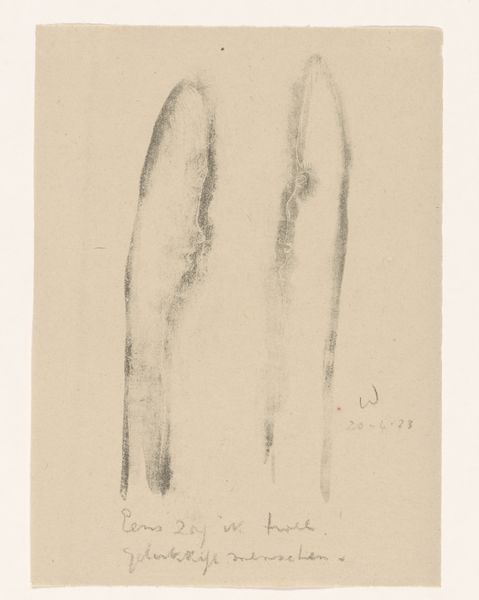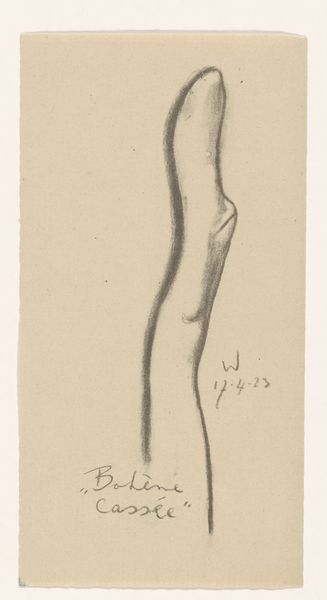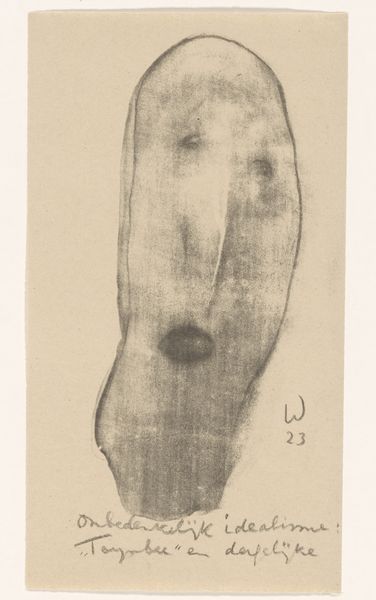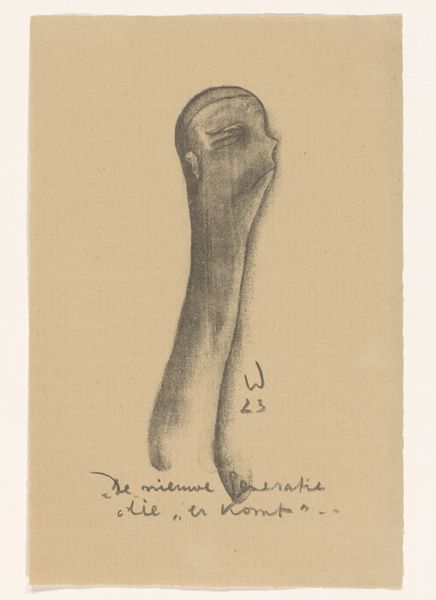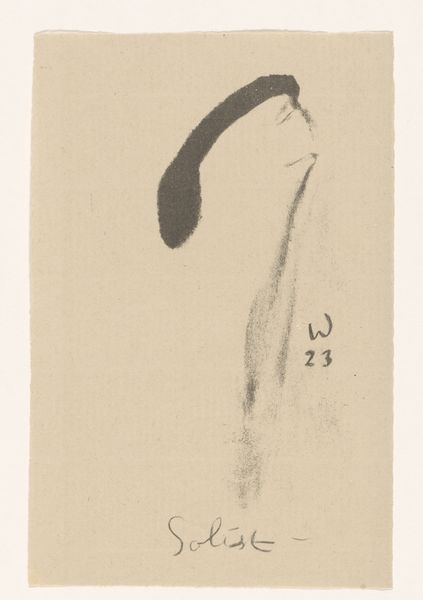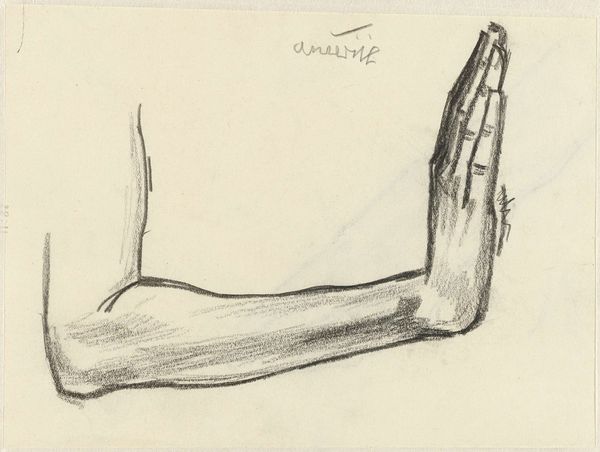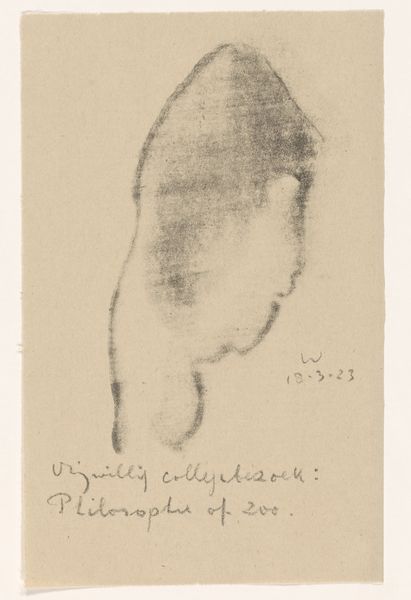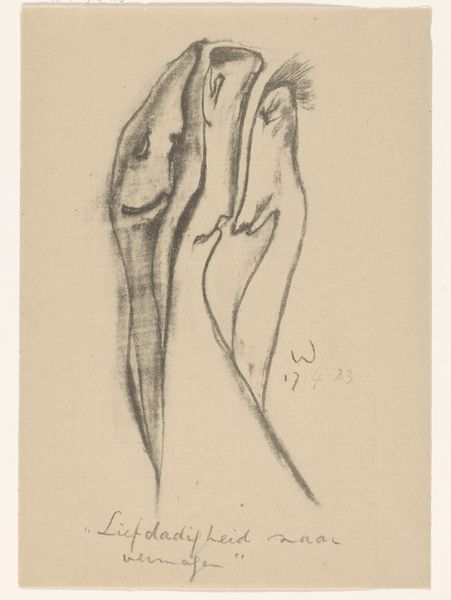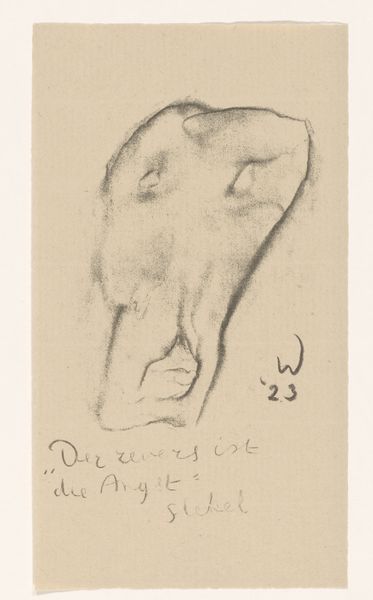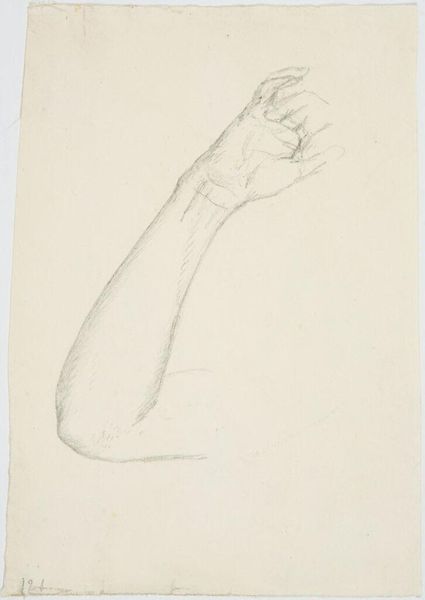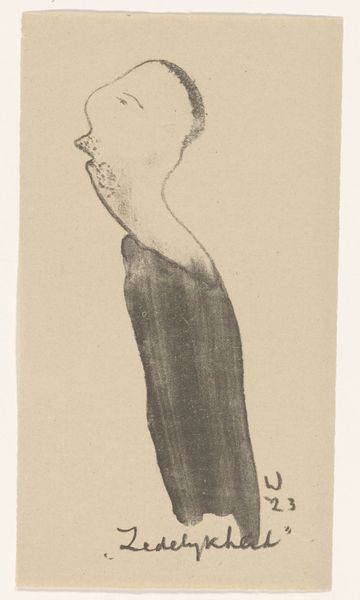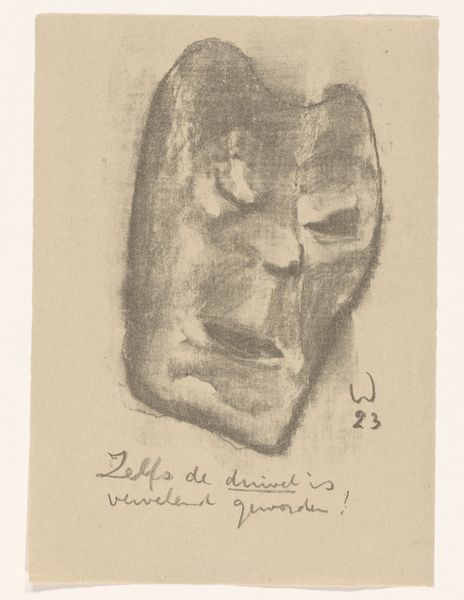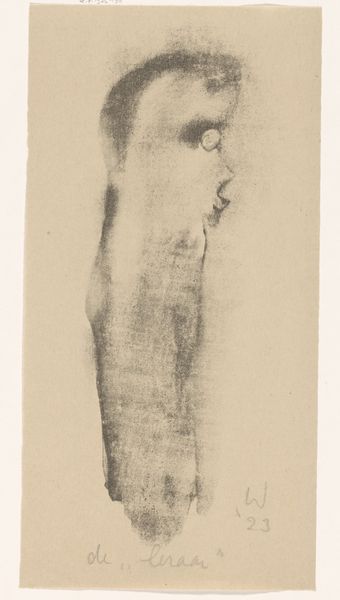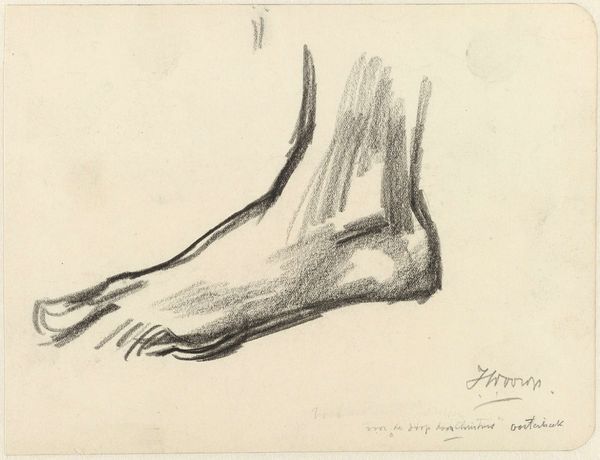
drawing, pencil
#
portrait
#
drawing
#
german-expressionism
#
figuration
#
pencil
Dimensions: height 187 mm, width 140 mm
Copyright: Rijks Museum: Open Domain
Curator: This spectral figure, rendered in pencil, is titled "Theosophische Philosophie," or "Theosophical Philosophy." It’s attributed to Erich Wichmann, possibly from 1923 or 1924. The artist’s hand lends it such delicacy... Editor: Yes, the first thing that strikes me is its quiet intensity. The way the pencil softly sculpts the face is unsettling but serene, all at once. There is an austere visual metaphor for higher philosophy right here, so to speak. Curator: Exactly! It's haunting. Considering it’s from the German Expressionist movement, one expects sharp, jarring lines. This drawing feels almost… ethereal, you might even say. A spirit emerging from shadow, perhaps? Editor: Shadow plays a massive role. Looking at its time period, the legacy of war certainly seeps into the emotional tone, especially through German Expressionism. It’s like this figure embodies both profound inner seeking and collective societal anxiety after the World War One era. Is Wichmann, therefore, suggesting that this spiritual journey is intrinsically melancholic and imbued with political doubt? Curator: I can imagine it could be. Wichmann explores a delicate tension in this image. The face is just emerging – struggling to define itself against the weight of its surroundings. It's introspective... questioning. Almost as if Theosophy itself, this "spiritual philosophy," is in constant, melancholic self-reflection. Editor: And given Theosophy's ties to seeking universal truths across religions and philosophies, does this almost embryonic form, struggling to materialize, indicate a fragile state of interfaith relations during the Interwar? Curator: That's a compelling observation! Its unfinished quality suggests a philosophy constantly evolving and never quite realized, still asking big questions about being. There is a wabi-sabi-like quality, too – acceptance of the incomplete and imperfect. Editor: Absolutely. "Theosophische Philosophie" speaks, subtly but firmly, to a fractured zeitgeist. An invitation to remember and reconcile. Curator: For me, it whispers, of the tender strength in vulnerability. It also celebrates the beautiful frailty of philosophical questioning itself.
Comments
No comments
Be the first to comment and join the conversation on the ultimate creative platform.
